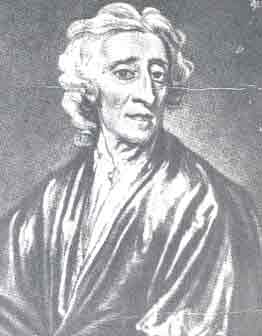People
Philosophers
John Locke (1632-1704)
John Locke (1632-1704). English philosopher, founder of British empiricism. Locke summed up the Enlightenment in his belief in the middle class and its right to freedom of conscience and right to properity, in his faith in science, and in his confidence in the goodness of humanity. His influence upon philosophy and political theory has been incalculable.
His notions of government with the consent of the governed and the natural rights of man (life, liberty, and property) had an enormous influence on colonial Americans, allowing them to justify revolution and shape a new government.
Locke was one of the "British Empiricists", which also included David Hume [People] and George Berkeley [People].
He is considered the chief protagonist of empiricism, commonly called the "blank slate" or "Tabula rasa" theory, an attack on the doctrine of innate ideas -- that is, ideas which humans possess from birth -- which had dominated Western epistemology since Plato [People]. The "Tabula rasa" theory states that all people start out knowing absolutely nothing and that they learn from experiences and trial and error. This is considered the foundation for behaviorism. Locke criticism of innate ideas was most famously attacked by Gottfried Leibniz.
John Locke (1632-1704)

04-22-2004